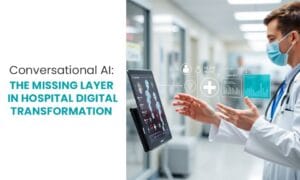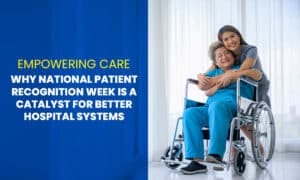
Managing chronic conditions like diabetes and other endocrine disorders takes constant attention and detailed monitoring. Electronic Health Records (EHRs) designed specifically for diabetology and endocrinology help streamline care, boost patient engagement, and offer valuable insights into patient health. These specialized EHR systems meet the unique needs of diabetes and endocrine care by allowing providers to document, track, and analyze patient information in one place. A well-designed Diabetology-Endocrinology EHR makes it easier to deliver personalized, efficient care.
Key Features of Diabetology-Endocrinology EHR
1. Real-Time Glucose Monitoring Integration
With real-time glucose monitoring, EHRs can track blood sugar levels, making this critical data instantly available to healthcare providers. This feature lets doctors and nurses see blood sugar trends and make timely adjustments to treatment plans as needed.
2. Automated Insulin Dosing and Therapy Management
Managing insulin dosages and other therapy needs can be complex. Diabetology-Endocrinology EHRs can calculate insulin doses based on the latest patient data, reducing manual work and potential errors. This feature helps in delivering accurate and safe treatments tailored to each patient’s needs.
3. Modules for Endocrine Disorders
EHRs for diabetology and endocrinology come with modules that help manage and monitor conditions like thyroid, adrenal, and pituitary gland disorders. These modules make it easier to document symptoms, treatment plans, and progress, giving healthcare providers a clearer view of each patient’s health journey.
4. Lab Results Integration and Trend Analysis
Lab results, including A1C levels, hormone levels, and cholesterol, are integrated within the EHR to create a full health profile. This feature makes it easier to observe trends in test results over time, providing essential insights that can improve diagnosis and treatment.
5. Patient Education Tools and Adherence Tracking
Education is a big part of managing diabetes and endocrine disorders. Built-in tools provide patients with information about lifestyle, diet, and medication management. The EHR can also track patient adherence to treatment plans, sending reminders about medication schedules, lifestyle tips, and upcoming appointments to encourage better health habits.
6. Telehealth and Remote Monitoring Options
Regular follow-ups are key for managing diabetes and endocrine issues. Telehealth and remote monitoring let patients connect with healthcare providers from home, ensuring they get the care they need without frequent in-person visits.

Benefits of Using Diabetology-Endocrinology EHR
1. Personalized Treatment and Accurate Care
A Diabetology-Endocrinology EHR enables customized treatment plans by closely tracking each patient’s health metrics, adjusting care as needed. This approach supports improved patient outcomes and better overall health management.
2. Time Efficiency and Better Workflow
Automating repetitive tasks and integrating monitoring tools reduces the time spent on manual data entry, freeing healthcare providers to focus more on patient care. An efficient workflow ensures faster access to patient information, quicker diagnoses, and an ability to attend to more patients with better results.
3. Improved Patient Engagement and Adherence
With features like patient portals and educational resources, these EHRs allow patients to stay involved in their care. Patients can access their records, track progress, and receive reminders for medication and lifestyle changes, promoting active involvement in their treatment plans.
4. Data Insights for Improved Health Outcomes
An EHR that provides data analytics allows healthcare providers to assess treatment plan effectiveness and make data-informed decisions. By tracking patient progress and outcomes, doctors can refine treatments and improve patient care over time.
5. Enhanced Compliance with Health Regulations
Diabetology-Endocrinology EHRs ensure compliance with healthcare regulations, providing accurate, secure documentation, billing, and reporting. Automated billing codes for diabetes or endocrine treatments ensure accurate billing and help healthcare providers meet necessary legal requirements.
Future Perspectives of EHR in Diabetology-Endocrinology
Advanced AI and Predictive Analytics
Future Diabetology-Endocrinology EHRs will include AI-driven predictive analytics to help identify health risks, such as potential blood sugar issues, before they become severe. This allows providers to take early action and improve preventive care for patients.
Integration with Wearable Technology
Wearable devices that track glucose, heart rate, and activity will work directly with EHRs, enabling healthcare providers to monitor patient health in real-time. This integration helps in creating highly personalized treatment plans based on day-to-day health metrics.
Support for Personalized Treatment Plans
EHR systems will continue to evolve, allowing even greater personalization in treatment. Using patient data like medical history, lifestyle factors, and genetic background, these EHRs can help shape more individualized care plans that work best for each patient.
Conclusion
For managing diabetes and endocrine health, Diabetology-Endocrinology EHRs have become essential tools. They simplify care, improve data accuracy, and support better patient engagement, making them invaluable for healthcare providers and patients alike. As technology advances, these systems promise even more improvements in patient outcomes and care efficiency, paving the way for smarter, more connected healthcare.





